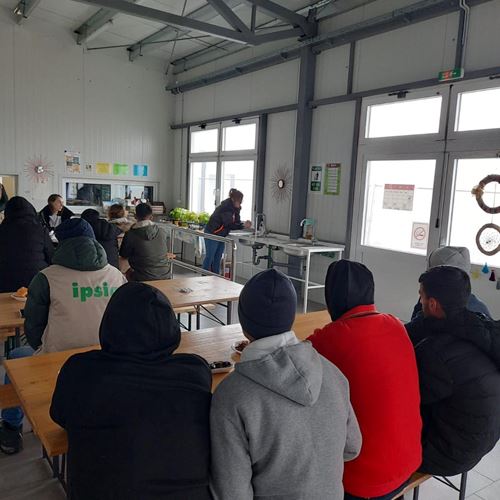Sustainable Development Goal 6 calls for the global community to achieve access to hygiene for all by 2030. Poor hygiene and inadequate sanitation cause over one million deaths around the world per year and it is estimated that three out of ten people, 2.3 billion globally, lack a facility with water and soap available to wash their hands at home, including 670 million who have no handwashing facility at all.
Access to proper hygiene has always been a major public health challenge and is responsible for the increased burden of communicable diseases even in developing countries, but countries on the migration routes and the people on the move as u vulnerable category are affected more by this challenge. Therefore, DRC in BiH is very active in implementing workshops with people on the move both in temporary reception centers and outreach locations with the aim of raising awareness of the importance of preventing various communicable diseases caused by the lack of hygiene.
“We are aware that many people on the move, unfortunately” doesn’t have the access to clean water and sanitation, due to their constant movement towards their desired destination. But once when they reach BiH, and TRC’s where they have available all hygiene products and access to water when they have accommodation and fresh meals, we are trying to enhance the awareness of the simple act of cleaning hands that can save lives and reduce illness by helping prevent the spread of infectious diseases, because people frequently touch their face, food and surfaces, and hands play a significant role in spreading disease,” emphasized Marko Isajlović DRC Medical Advisor.
For people accommodated outside of TRC’s DRC medical and outreach teams organize the same workshops and ensure hygiene kits and bottled water.
This activity is implemented under the project “Individual measure to strengthen the response capacity to manage migration flows in Bosnia and Herzegovina” which is funded by the European Union through an Instrument for Pre-Accession Assistance (IPA) and implemented by the International Organization for Migration (IOM) in partnership with United Nations High Commissioner for Refugees (UNHCR), United Nations Children's Fund (UNICEF), United Nations Population Fund (UNFPA) and Danish Refugee Council (DRC).
